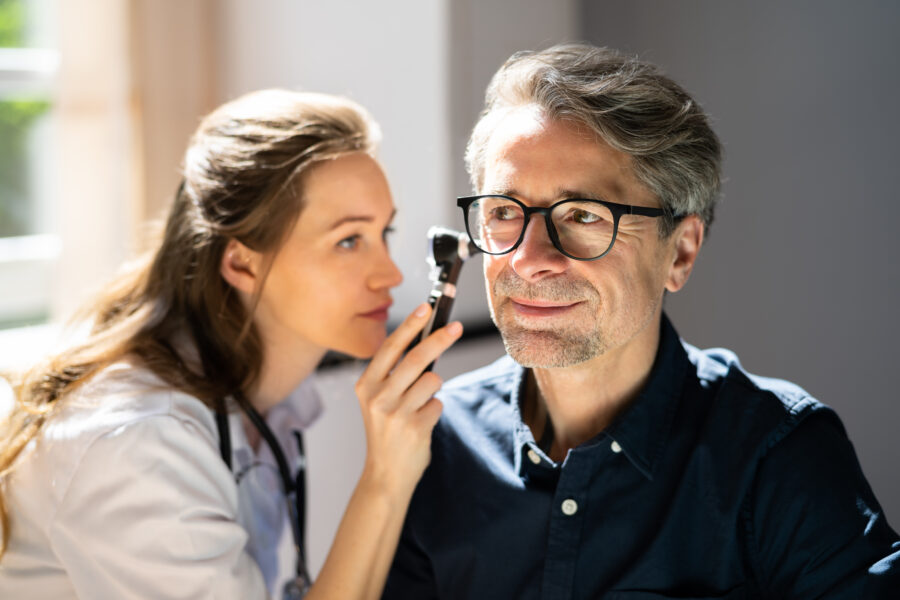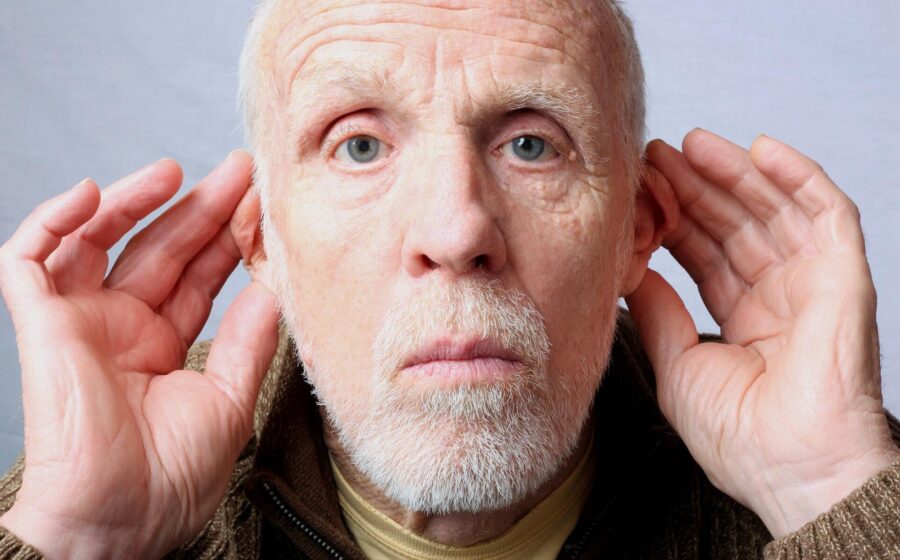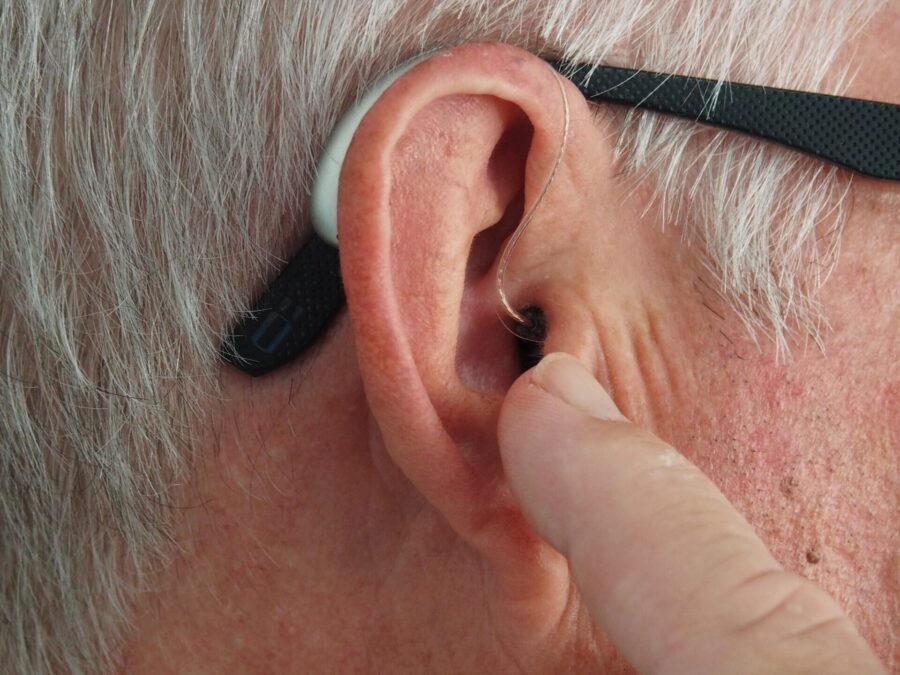Blog post
A Guide to Hearing Loss: Signs, Causes and How to Prevent it
Hearing is the physiological process by which our ears capture sound waves from the environment, convert them into electrical signals, and send these signals to the brain.
Once in the brain, these signals are interpreted and recognised as specific sounds. This ability allows us to communicate, recognise environmental cues, enjoy music, and stay alert to potential dangers.
However, as we get older, the delicate hair cells in our ears start to degrade, which reduces our ability to perceive certain frequencies and results in hearing loss.
In the UK, around 40% of the population over 50 have some form of hearing loss.
Over 11 million people in the UK are affected by hearing loss, but don't realise because they don't know the signs to look out for.
RNID
Signs of hearing loss
As hearing loss tends to happen gradually as we age, it can be hard to pinpoint its signs. Some signs to be aware of include:
- Sounds may seem loud but not clear enough to distinguish
- Quiet sounds, such as birdsong, or people talking in another room are harder to hear
- Some voices are easier to hear than others
- Talking in groups is becoming harder as you become less able to understand what is being said
- When you are out and about at meetings, parties and restaurants you often have to ask people to repeat themselves
- People seem to appear in the room, but you haven't heard them enter
- You don't hear buses or cars coming from behind when you’re around traffic

Causes of hearing loss
Hearing loss is caused by damage to the hair cells situated in the cochlea in the inner ear.
Damage to these hair cells can occur for various reasons, including:
- Exposure to harsh noise in both volume and intensity caused by environmental factors such as listening to loud music, using loud tools such as drills, mowers or even hoovers
- Genetics - sometimes there can be a hereditary reason due to genetic mutations
- Blockages between the inner and outer ear can prevent sound waves from reaching the inner ear
- Illnesses
- Trauma to the ear
- Some types of medications
- A combination of the above

How to prevent hearing loss
While not all forms of hearing loss are preventable (e.g., age-related or genetic factors), there are steps you can take to protect your hearing:
- Limit noise exposure by using earplugs when you’re exposed to loud noises like concerts, machinery, motorbikes or at loud events.
- Limit time in noisy environments: If possible, take breaks from noisy environments to give your ears some relief.
- Follow the 60/60 rule: Listen to music or use headphones at no more than 60% of the maximum volume for no more than 60 minutes a day.
- Choose noise-cancelling headphones: They can reduce the need to turn up the volume in noisy environments.
- Medications: Some medications can be harmful to your ears. Always discuss potential side effects with your doctor and monitor your hearing if you're on medications known to affect hearing.
- Get your hearing tested regularly, especially if you're over the age of 50. Early detection can lead to interventions that may help reduce the progression of hearing loss.
- Prevent ear infections by keeping your ears clean and dry. Avoid inserting objects into your ears, including cotton swabs.
- Maintain a healthy lifestyle: Refrain from smoking, as tobacco use can increase the risk of hearing loss. Maintain good cardiovascular health through a balanced diet and regular exercise, as there's some evidence suggesting that good circulation plays a role in maintaining ear health.
- Be aware of the risks associated with hearing loss and educate your friends, family, and community. This can foster a collective effort to reduce noise pollution and prioritise hearing health.
Remember, once hearing is damaged, it cannot be fully restored. However, taking these preventative measures can go a long way in preserving your hearing health. If you suspect you might be experiencing hearing loss, consult a hearing specialist.

What should I do if I notice signs of hearing loss?
Acting on hearing loss can mean many things, from managing a build-up of wax to using technology for assistance, like hearing aids. However, for many, taking action can be daunting.
We understand that it can be intimidating; that’s why we’ve added an online hearing test to our website.
The test is designed to help you determine whether you should consult a hearing care professional. It takes just a few minutes, is entirely free, and can be completed privately at home.
Or, if you’re ready to take the next step and speak to a professional, we have a team of friendly, qualified, and experienced hearing specialists from all over the country who can come and conduct a hearing test for you in the comfort of your own home.




